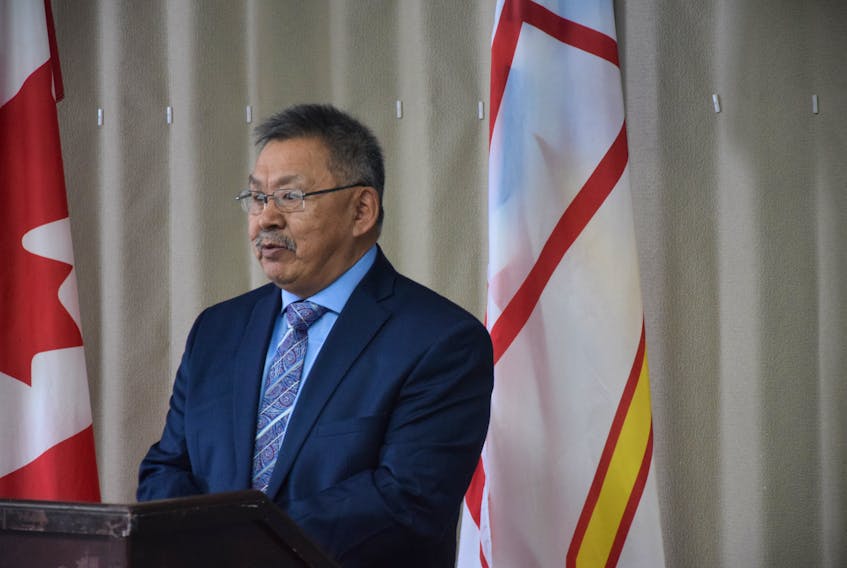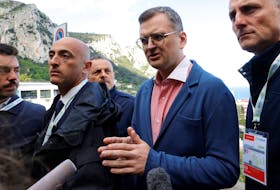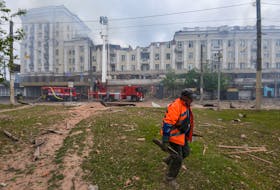The Nunatsiavut Government (NG) sent a letter to the Premier three months ago asking when the province is going to respond to the recommendations of the Independent Expert Advisory Committee (IEAC) to address health concerns of the Muskrat Falls Project and they have yet to receive a reply.
NG president Johannes Lampe told The Labradorian he has followed up with Premier Dwight Ball by sending another letter and they are concerned about the lack of response.
“We haven’t received a reply or response on what it is that the province is going to do before they shut the gates and the water levels will rise up and the project will be completed,” he said. “Ice will come after and again flooding within Mud Lake or Happy Valley-Goose Bay, that will become a concern again. We want to make sure that a response will be given before the project is completed.”
NG has been trying to find out if the province will implement the four recommendations of the IEAC, created following an agreement between area governments at a marathon meeting at Confederation Building in St. John’s on Oct. 25, 2016. One of the recommendations, which did not achieve consensus among all voting members, was that Nalcor Energy undertake targeted removal of soil and capping of wetlands in the future reservoir area before impoundment.
With impoundment of the reservoir coming in early 2019, Lampe said they are concerned that the province will take too long and it will be a moot point. He noted in an interview with The Labradorian in August that he believes the province is deliberately dragging its feet on the recommendations until it’s too late to implement them.
The Labradorian reached out to the Department of Municipal Affairs and Environment about the recommendations and was told in an emailed statement a decision on the recommendations should be coming soon.
“The Provincial Government has taken the concerns related to methylmercury associated with the Muskrat Falls Project very seriously and is committed to ensuring that the health and safety of residents is protected,” the statement read. “The Department of Municipal Affairs and Environment continues to review the IEAC’s final recommendations and anticipates responding to the recommendations in the near future.”
The IEAC’s committee made four recommendations in total and the other three were agreed upon by all voting members. Those were that a public information campaign be undertaken; an independent body oversee the design and implementation of a monitoring program for the Lower Churchill Project; and the province, Nalcor Energy, Indigenous groups and the local populations negotiate an Impact Security Fund prior to full flooding.
The committee was comprised of four voting members — the Innu Nation, the Nunatsiavut Government, Nunatukavut Community Council and the Affected Municipalities, as well as non-voting representatives of the provincial and federal governments and Nalcor. The Innu Nation did not agree with the recommendation that Nalcor Energy undertake targeted removal of soil and capping of wetlands in the future reservoir area before impoundment.
When asked by The Labradorian what the Nunatsiavut Governments next step would be if the province does not implement the recommendations, Lampe said they will not stop.
“We will certainly continue to write letters and to make sure that the province is responsible for action or inaction,” he said. “We will not stop looking for a response until what we are looking for is given to us.”
NG was one of the driving forces behind the Make Muskrat Right campaign and the subsequent protests in 2016. Lampe was hesitant to say if Nunatsiavut would call members to the picket lines again.
“We did that in Rigolet and here at the site,” he said, referring to the protests. “We were not able to cross and go in but a number of people crossed the lines and so were issued court papers and had to appear before the judge and so it’s a difficult issue to look at right now.”









